Major Power Relations
Your Present Location: PROGRAMS> Major Power Relations-
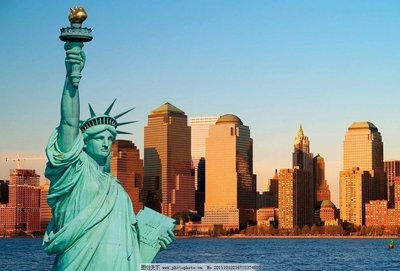
Jin Canrong: why is the United States the most powerful? Because its values are very fragile
Recently, the U.S. government has frequently “stepped in” against China, and its efforts to suppress and stimulate China have become stronger and stronger. But at the same time, its internal problems are also emerging. On the current situation of the United States, observer net interviewed Jin Canrong, Professor of the school of international relations of Renmin University of China, and asked him to talk about his views on how to view the United States and how to deal with the future Sino US relations. The following is the content of the interview.
2020-08-28 -
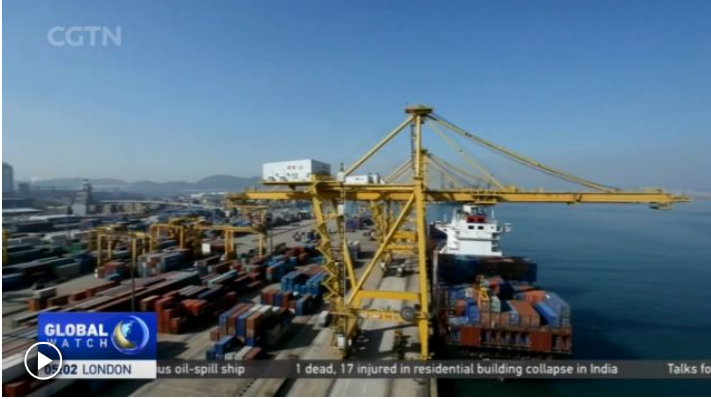
China-US Trade Talks: Review of Phase 1 deal
2020-08-26 -
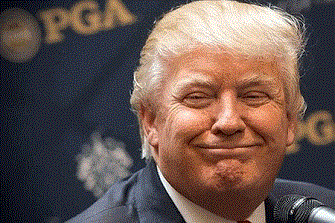
Conway's departure deepens negative image of Trump administration, shows a society divided by politics
Few days after Steve Bannon, former advisor of US President Donald Trump, was arrested and charged with fraud, another long-standing advisor Kellyanne Conway announced on Sunday to leave the White House, which observers believe may deepen the negative image of Trump administration and update people's impression to the world largest power.
2020-08-25 -

Wang Yi's Europe visit to call for multilateralism, strengthen cooperation amid US' unilateralism
Chinese State Councilor Wang Yi's upcoming Europe visit will help consolidate China-Europe relations, explore practical cooperation in responding to the pandemic and call for multilateralism amid US unilateralism and attempts to form an anti-China alliance in Europe, analysts said. Wang, who is also the Foreign Minister, will visit Italy, the Netherlands, Norway, France and Germany in his first overseas visit since the COVID-19 pandemic. The week-long visit has been welcomed by the relevant countries and demonstrates that both sides attach great importance to China-Europe relations, said Zhao Lijian, spokesperson of the Chinese Foreign Ministry, on Monday.
2020-08-25 -
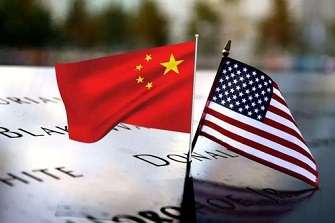
Positive signal for trade talks with US
China has approved plans by US-based asset manager BlackRock Inc, together with Singapore's Temasek Holdings and China Construction Bank Corp (CCB), to establish an asset management joint venture in China, a move industry observers said sends a positive signal ahead of a much-anticipated call between China and the US over the phase one trade agreement in the coming days.
2020-08-24 -
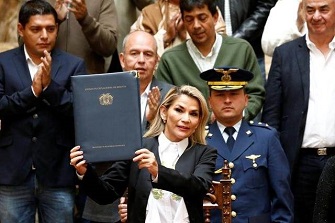
Vijay Prashad & Manuel Bertoldi: Will there ever be elections again in Bolivia?
On November 10, 2019, President Evo Morales Ayma of Bolivia announced his resignation from the presidency. Morales had been elected in 2014 to a third presidential term, which should have lasted until January 2020. In November 2019, protests around his fourth electoral victory in October led to the police and the military asking Morales to step down; by every description of the term, this was a coup d’état. Two days later, Morales went into exile in Mexico.
2020-08-19 -
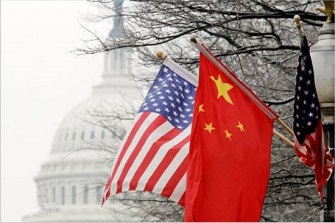
William Jones: Who should be blamed for deteriorating US-China ties?
It's perhaps understandable that some people may try to do self-examination of China policy at a point when US-China relations have slid to an unexpected low. But it is hard to see that China could have done anything differently to change the situation short of reneging on some of its most essential goals in the process of China's emergence as a major power on the world stage. In fact, compared to all the other countries in the world, China did everything right.
2020-08-19 -

Zhao Minghao: China's multi-layered countermeasures against US
In the face of rounds of full-scale offensives launched by Washington against Beijing, some voices think China's countermeasures are not robust enough. But the fact is that when Beijing takes countermeasures, these measures must be proper responses. Tense issues relating to Taiwan, Hong Kong, the South China Sea and TikTok have recently been worsened by Washington. These are a combination of re-election tactics and profound changes in US policy toward China. Obviously, when Beijing responds to Washington, Beijing needs comprehensive considerations that blend its short-term and long-term interests.
2020-08-17 -
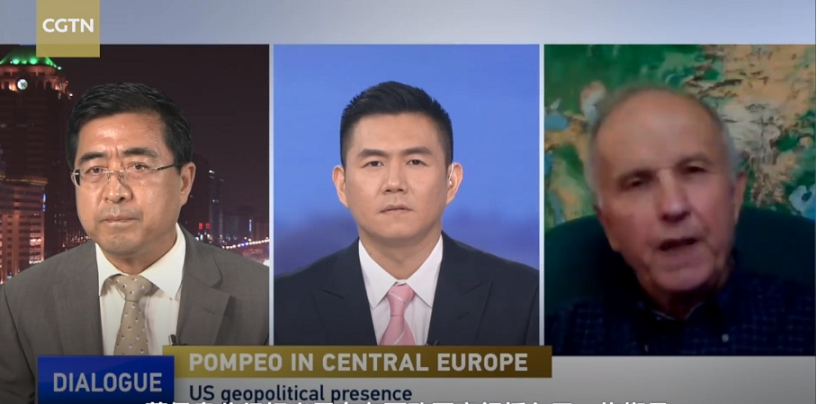
【CGTN】Grzegorz W. Kolodko: Stay the course, be pragmatic, and to look to East
On August 14, Former Deputy Prime Minister and Minister of Finance of Poland Grzegorz W. Kolodko gave an interview to CGTN. Prof. G. W. Kolodko, former Polish deputy premier and minister of finance, advises future Polish governments to stay the course, be pragmatic, and to look to East. "The Americans they don't listen because they believe that they know better than anybody else, which is not true."
2020-08-14 -
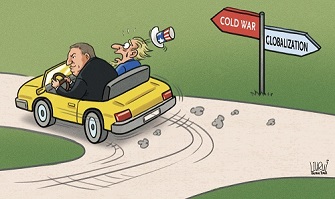
Czechs cold to Pompeo’s anti-China lobby
Chinese observers said that Central and Eastern Europe, which were torn apart by ideology during the Cold War, should not be fooled by US Secretary of State Mike Pompeo, who obviously still lives with a Cold War mindset, desperately trying to form anti-China cliques with his trip to the region. Three weeks after Mike Pompeo's infamous anti-China speech, which was widely considered a historic mistake, Pompeo on Tuesday began his visit to four central and eastern European countries—the Czech Republic, Slovakia, Austria and Poland.
2020-08-14 -
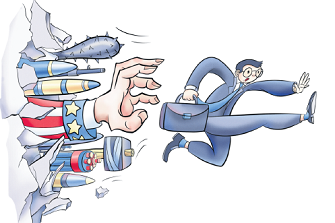
He Yafei: Avoiding the US trap
There are not many reasons to be optimistic about China-US relations, which some people say have entered their darkest phase. But what is the real picture like? Graham Allison, a political scientist and professor at the Kennedy School of Government at Harvard University, has used the term "Thucydides trap" to describe the confrontation between the United States, as the dominant power, and China, as the rising power. According to the "Thucydides trap", a rising power challenges the dominance of an established power, but in reality it is the United States that is provoking a new Cold War against China, and has even described its differences with China as a "clash of civilizations".
2020-08-14 -
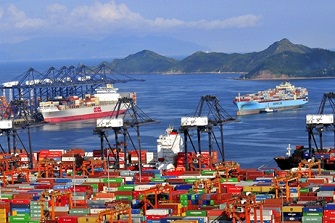
US companies staying put in China despite trade tensions: survey
Despite an unprecedented downturn in US-China relations amid the coronavirus pandemic, American businesses are not leaving the Chinese market, one of the world's largest, a report from the US-China Business Council (USCBC) showed. Five-year projections from US companies doing business in China are bullish, with nearly 70 percent expressing optimism about the market's prospects and 87 percent saying they have no plans to shift production out of China, the USCBC report said.
2020-08-13 -

William Jones: As the 'Five Eyes' gear up to confront China, can anyone say that the British Empire is a thing of the past?
A recent article published in the China Economic Diplomacy Watch pointed to the "Five Eyes" – the U.S., UK, Australia, Canada and New Zealand – as the key rallying group for Pompeo's call for a containment policy toward China. The article has indicated a crucial element in the danger the world is facing. The unifying factor in this grouping is, firstly, that the "Five Eyes" are all English-speaking countries, and secondly, that they all at one time or the other belonged to the British Empire.
2020-08-11 -
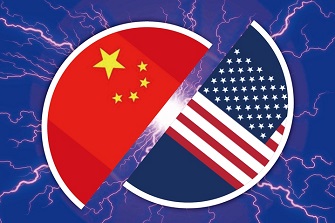
90% Chinese netizens disfavor US amid tensions, support strong retaliation against US: GT online survey
Retaliation measures enforced by the Chinese government in response to US provocations are overwhelmingly supported by the public, and increasingly more Chinese people disfavor the US amid the recent spate of unprecedented tensions since the two countries established diplomatic ties in the late 1970s, a survey showed on Monday.
2020-08-11 -
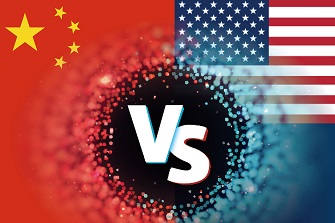
Wang Wen: US-China hot war hype scary hot air
Worry has been spreading within international public opinion fields - that a hot war between China and the US is about to break out. There have been rumors and speculation going around that the US could neutralize some of China's island bases in the South China Sea. Others say a military conflict may spark accidentally. Journalists have been interviewing scholars over the topic what, "if a war breaks out." There have even been rumors that some Chinese people are sharing the knowledge of civil air defense in their WeChat Moments. Anxiety is lingering.
2020-08-11 -
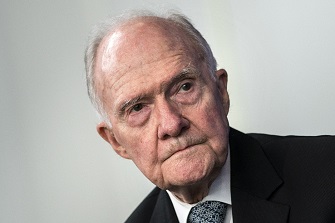
Best way to honor General Scowcroft is to put China-US relationship back on right track: Embassy
The best way to honor General Scocroft is for both sides to work together to put China-US relations back on the right track despite current disturbances and difficulties, the Chinese Embassy in the US said on Saturday following the passing of General Brent Scowcroft, former US National Security Adviser to the President and old friend of the Chinese people, who made a great contribution to promote bilateral cooperation in difficult times.
2020-08-09 -

Subtle change, consistent stance in FM Wang’s message to US
As the US is trapped in political turmoil and its diplomacy seemingly has entered an anarchic state manifested by its wanton and crazy assaults against China, Chinese State Councilor and Foreign Minister Wang Yi vowed to cool off tensions and set out a clear framework for bilateral relations, showing that China will always maintain rational and strategic willpower in discourse while preparing for any bumps in the road ahead. "Avoid confrontation, keep the channels open for candid dialogue, reject decoupling and stand up to shared responsibilities," Wang said in an interview with the Xinhua News Agency on Wednesday, drawing a clear-cut framework needed for the China-US relationship.
2020-08-07 -
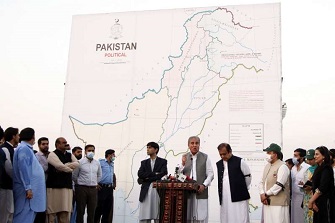
Pakistan’s new Kashmir map links it to China, fuelling India’s fears of war with both
Pakistan's move to unveil a new political map reasserting its claim to all of Indian-administered Kashmir - minus the parts claimed by China - is fuelling New Delhi's fears of a two-front conflict with its neighbours, despite a lack of evidence that such a move is in the works. But the release of the map is the latest in a series of conflicts born from cartography which have broken out in the Himalayas since May - from a deadly scuffle between Indian and Chinese soldiers in mid-June to a war of words that began earlier in the summer when Delhi opened a road through territory claimed by Nepal.
2020-08-07 -
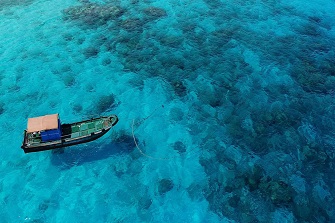
Wang Yiwei: China supports international sea laws, US the opposite
The International Tribunal for the Law of the Sea (ITLOS), an intergovernmental organization created by the mandate of the Third United Nations (UN) Conference on the Law of the Sea, is expected to hold an election in August or September. China has nominated a candidate for the position of judge in the ITLOS. But the US is attempting to stop China by saying that China has flouted international sea laws in the South China Sea, according to a report by CNBC released on Monday.
2020-08-06 -
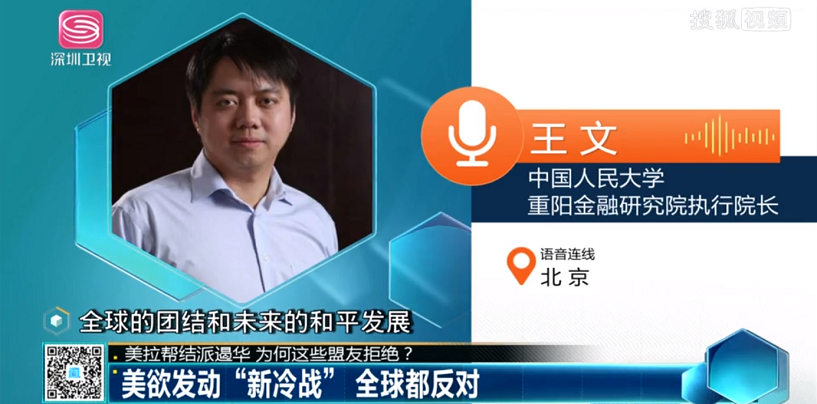
【Shenzhen TV】Wang Wen: U.S. Ganging Up to Contain China, Why These Allies Refuse
As the China-US game escalates, the US has ganged up to contain China, and ASEAN countries have not followed, so why do these allies refuse the US? In the evening of August 3, Shenzhen TV's "Hot Spot Debate" in depth analyzed this problem and connected to Wang Wen, the executive dean of Chongyang Institute for Financial Studies, Renmin University of China (RDCY). Dr. Wang described the international online meeting entitled “A New Cold War against China is against the interests of humanity” on July 25 and said that the current U.S. tactics against China are not new at all, reflecting the exhaustion of U.S. skills in the great power competition. And China should retain its basic strategic stability and be more confident in its strategy.
2020-08-06
























































































 京公网安备 11010802037854号
京公网安备 11010802037854号





